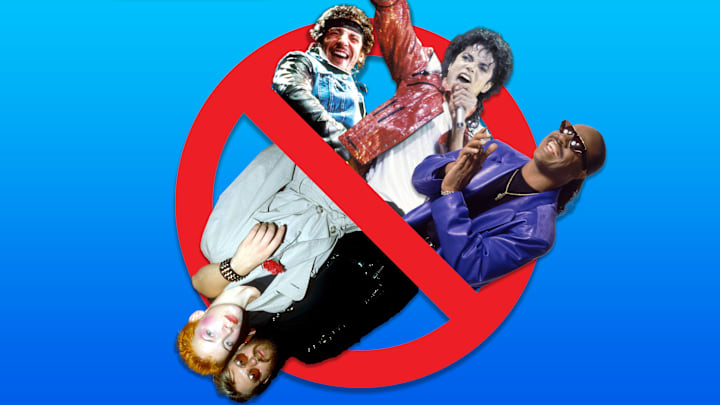Live Aid: The Controversial Legacy of the Biggest Charity Concert

Live Aid, the monumental bicontinental pop concert held on July 13, 1985, was conceived by Bob Geldof and Midge Ure to combat the Ethiopian famine, making it one of the most spectacular and impactful musical events in history. Staged simultaneously at London’s Wembley Stadium and Philadelphia’s John F. Kennedy Stadium, the event captivated a global audience of nearly 2 billion people and successfully raised approximately $140 million for famine relief. The idea for Live Aid originated from Geldof's reaction to a BBC report in October 1984 depicting starving children. This led him to co-write and record the charity single “Do They Know It’s Christmas?” with Midge Ure, released by Band Aid in December 1984, which raised over $28 million and set the stage for the larger concert.
The concert featured an impressive roster of over 50 of the music industry's biggest names, including iconic performances that cemented their place in pop history. Queen's 21-minute Wembley set, including “Bohemian Rhapsody” and “We Will Rock You,” is widely regarded as the greatest rock gig in history. U2’s performance, particularly Bono’s interaction with a fan during “Bad,” solidified their stadium-rock status. Phil Collins famously performed in London with Sting, then flew via Concorde to Philadelphia to perform his own set and drum for Eric Clapton and a reunited Led Zeppelin, an event remembered more for his transatlantic feat than Led Zeppelin’s under-rehearsed set. Other highlights included Run-DMC bringing hip-hop to a global stage, Madonna, Mick Jagger with Tina Turner, and Elton John dueting with George Michael. Bob Dylan used his platform to plant the seeds for another charity concert, Farm Aid, by suggesting aid for struggling American farmers.
Despite its widespread success, Live Aid faced criticism regarding its lack of diversity. Organizers, including Harvey Goldsmith and Bill Graham, stated they approached numerous major Black artists in both the UK and US, but many, such as Michael Jackson, Prince, and Diana Ross, declined. Stevie Wonder reportedly withdrew after seeing a predominantly white lineup, stating he wouldn't be a
Recommended Articles
Oscar Hopeful Crumbles: Audiences Walk Out in Droves!

The music biopic genre, once seen as a box office savior, is facing new challenges as films like 'Springsteen: Deliver M...
White House Dismisses Springsteen's 'Streets of Minneapolis' as 'Irrelevant Opinions'

Bruce Springsteen released a new protest song, “Streets of Minneapolis,” condemning the Trump administration's immigrati...
Springsteen Unleashes Fierce Anti-ICE Protest Anthem: 'Streets of Minneapolis' Blasts 'King Trump's Private Army'

Bruce Springsteen has released "Streets of Minneapolis," a powerful protest song addressing the Trump administration's a...
Michael Jackson Estate Ignites Feud with Sexyy Red Over 'Unauthorized' Beat It Remix

Michael Jackson's estate has denounced Sexyy Red's explicit and unauthorized remix of "Beat It," titled "Just Eat It," a...
Music World Mourns Loss of Guitar Legend Phil Upchurch, Dead at 84

Phil Upchurch, the iconic guitarist and session musician renowned for his collaborations with Donny Hathaway, Michael Ja...
Phil Collins Health Update: Legendary Musician Under Care, Yet Optimistic

Phil Collins has provided a comprehensive update on his ongoing health challenges, stemming from a 2007 spinal injury th...
You may also like...
Be Honest: Are You Actually Funny or Just Loud? Find Your Humour Type

Are you actually funny or just loud? Discover your humour type—from sarcastic to accidental comedian—and learn how your ...
Ndidi's Besiktas Revelation: Why He Chose Turkey Over Man Utd Dreams

Super Eagles midfielder Wilfred Ndidi explained his decision to join Besiktas, citing the club's appealing project, stro...
Tom Hardy Returns! Venom Roars Back to the Big Screen in New Movie!

Two years after its last cinematic outing, Venom is set to return in an animated feature film from Sony Pictures Animati...
Marvel Shakes Up Spider-Verse with Nicolas Cage's Groundbreaking New Series!

Nicolas Cage is set to star as Ben Reilly in the upcoming live-action 'Spider-Noir' series on Prime Video, moving beyond...
Bad Bunny's 'DtMF' Dominates Hot 100 with Chart-Topping Power!

A recent 'Ask Billboard' mailbag delves into Hot 100 chart specifics, featuring Bad Bunny's "DtMF" and Ella Langley's "C...
Shakira Stuns Mexico City with Massive Free Concert Announcement!

Shakira is set to conclude her historic Mexican tour trek with a free concert at Mexico City's iconic Zócalo on March 1,...
Glen Powell Reveals His Unexpected Favorite Christopher Nolan Film

A24's dark comedy "How to Make a Killing" is hitting theaters, starring Glen Powell, Topher Grace, and Jessica Henwick. ...
Wizkid & Pharrell Set New Male Style Standard in Leather and Satin Showdown

Wizkid and Pharrell Williams have sparked widespread speculation with a new, cryptic Instagram post. While the possibili...